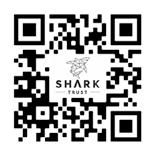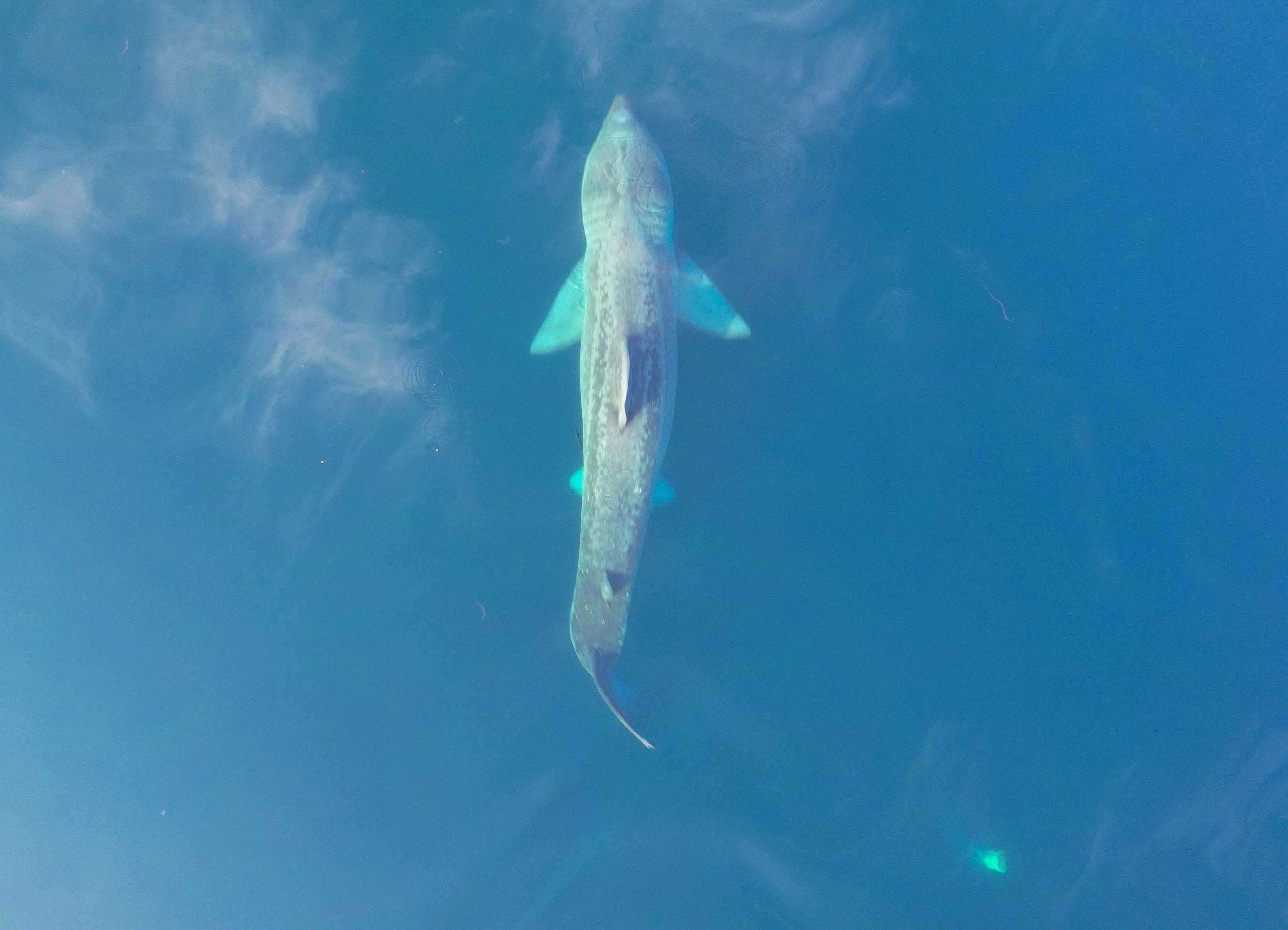

BASKING SHARK PROJECT
ABOUT THE PROJECT
Despite being the second largest fish in the ocean, there’s still so much we don’t know about this charismatic species. That’s why we continue to collect information on this Endangered shark. The Shark Trust’s Basking Shark project is a great way for citizen scientists to get involved with Basking Shark conservation. By being on the look-out for them from around April through to October (Basking Shark season), you can help us learn more about these graceful giants. If you spot one, make sure to submit your sighting(s) to us.
You can record your sightings through our Shark Log Sightings Database and the Basking Shark Project. We can then share the information submitted to us by members of the public with researchers and other conservation organisations, to further Basking Shark conservation efforts. To submit a record you can use our online recording form, or our mobile app (see page 2 for more info).
In the Northeast Atlantic, Basking Sharks are already highly protected under fisheries and wildlife legislation. Despite this, they remain vulnerable to human activities, including disturbance by water-users and getting struck by boats. This is why we developed our Basking Shark Code of Conduct (see page 4). Following this will help to ensure a safe and positive encounter for both water-users and Basking Sharks.
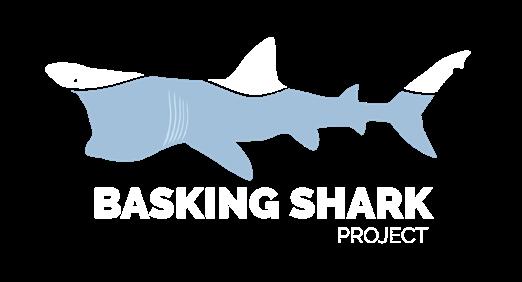
To increase your chances of seeing a Basking Shark, you can visit one of these well-known hotspots.
IRELAND
SOUTHWEST ENGLAND
HEBRIDES (MULL)
HEBRIDES (SKYE)
MALIN HEAD
ISLE OF MAN
© LUKAS LAUER
BASKING SHARK SIGHTINGS SIGHTINGS 2024
If you spot a Basking Shark please report your sighting to us, with as much information as possible. If you have a photo please submit this too so we can verify your record.
To identify a Basking Shark feeding at the surface, the key thing to look out for is three points that break the surface: the snout, the dorsal fin, and the caudal fin.
Check out our new Basking Shark Project logo, showing these three points above the surface!
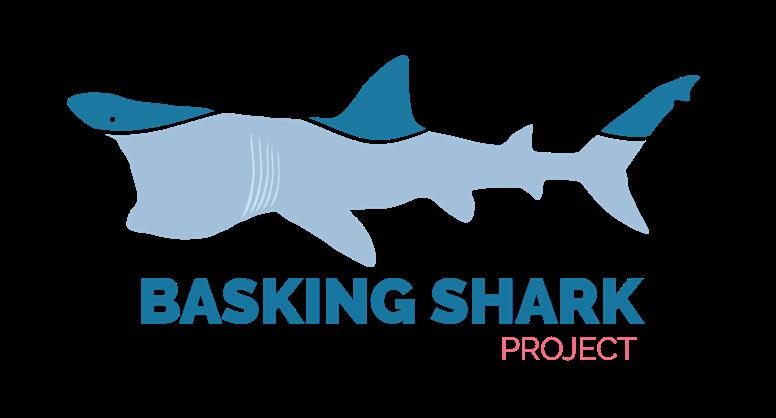
In 2024, 19 reports, accounting for 146 individual sharks, were submitted to the Shark Trust from around the UK and Ireland.
Despite the increased number of sharks sighted this year compared with recent years, the number of people submitting to the Basking Shark Project has actually decreasedparticularly from around Southwest England. This could be due to a number of reasons: changes in Basking Shark range and/or behaviour (with them potentially being deeper in the water and not being as visible at the surface), people not reporting sightings at all, or not reporting sightings to us but via other recording platforms.
We are aiming to unpick these factors over the next few years, so please help us by reporting any Basking Sharks that you see! If you’ve gone out looking for Basking Sharks in a known hotspot, but don’t see any, that is important information too!
THANK YOU for supporting our Basking Shark Project.
RECORD your sighting and find out more about the project at baskingsharks.org
Or submit your sighting using our SHARK TRUST
CITIZEN SCIENCE
APP Scan the QR code to download the app, or search ‘Shark Trust’ in the app store.
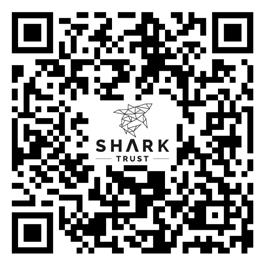

Thanks to everyone who has submitted their sightings.
We look forward to seeing, and hearing, about your shark encounters in 2025!
BASKING SHARKS IN FOCUS - 2025
REINVIGORATING BASKING SHARK SIGHTINGS
During the 2025 season, we’d love for you all to help us promote the Basking Shark Project. Last year, you helped us raise vital funds though the Green Match Fund, which we’ll be using to help further profile the Basking Shark Project and re-invigorate public engagement with this project.
Since 2014, the number of Basking Sharks being reported to the Shark Trust has dropped considerably. There has been a noticable shift in Basking Shark movements towards Scotland and now on to Ireland. However there are still sharks being sighted around Southwest England and the rest of the UK that aren’t
being recorded to the project. We’re aiming to increase the profile of this project and to work more closely with others who document Basking Shark sightings (whether through surveys or via citizen science observations), to ensure people know what to look for and where to report them.
So keep an eye out for sightings posters and stickers along with social media posts - if you’re happy to, please share them and help us reach a wider audience! If you’d like any sightings posters or Code of Conducts to promote recording and safe interactions then get in touch -
sightings@sharktrust.org

Working with the community
Following a Basking Shark Forum we hosted at the start of the year, we’re working with the wider scientific community to try and centralise Basking Shark sightings data held by different organisations.
We’re looking at the best ways for data to be standardised so it can be maximised to it’s full potential, and also how it can be presented in a visual format to help show the bigger picture for Basking Shark movements across their range.
But we still need you! Keep your eyes peeled and report any Basking Sharks you’re lucky enough to see. And spread the word! Tell your friends and family to keep an eye out and keep those records coming our way!
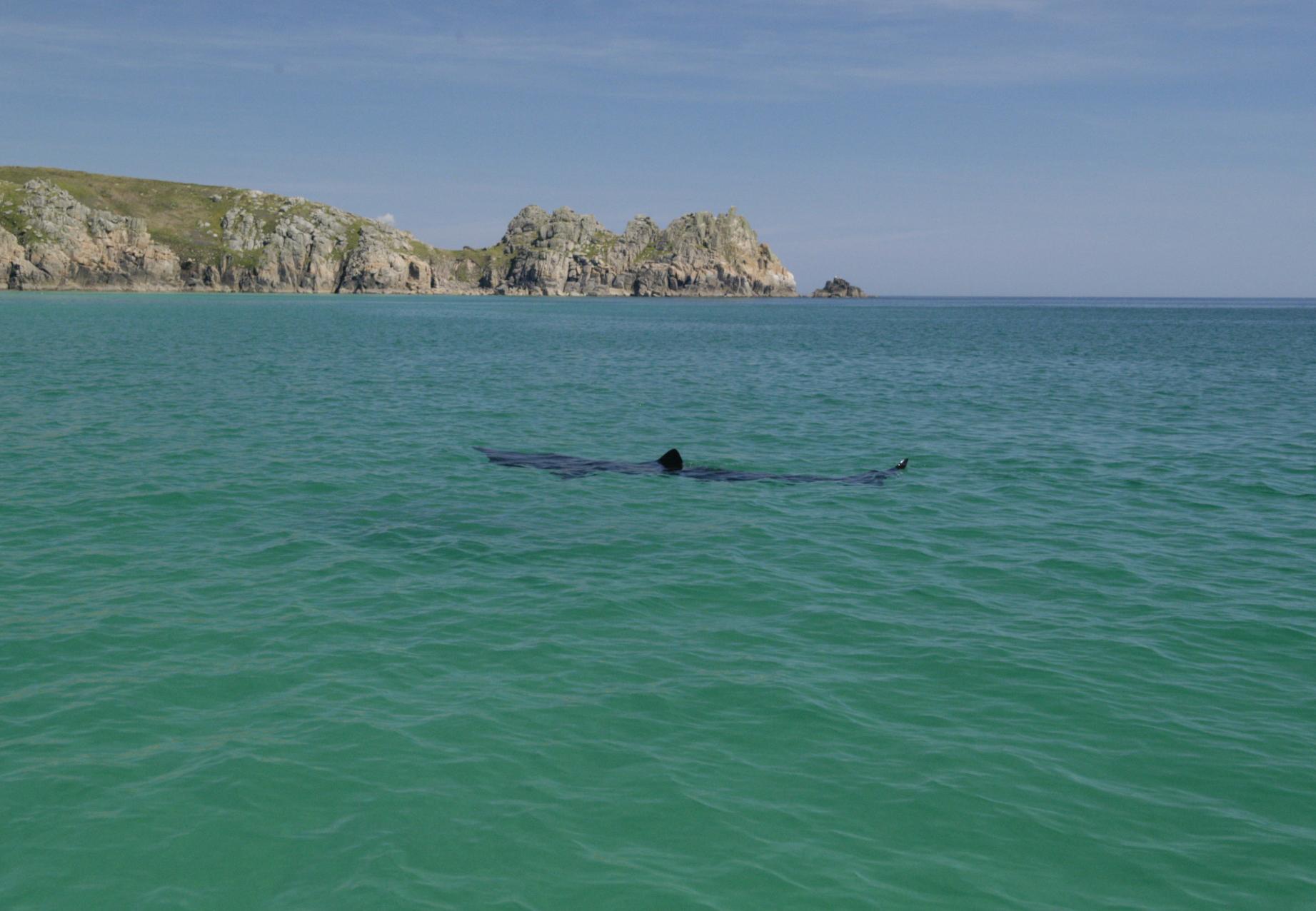
INFORMATION & CONTACTS
BOAT TOURS
Thinking of going on a boat tour to see Basking Sharks? We recommend seeking out a WiSe accredited tour operator. The Wildlife Safe (WiSe) scheme provides training and accreditation for tour operators. Advising them on how to best view and interact with large marine wildlife, while minimising disturbance. To find a WiSe accredited tour operator visit www.wisescheme.org
BASKING SHARKS IN DISTRESS
If you witness disturbance or harassment of a Basking Shark, please report it to the National Wildlife Crime Unit immediately. For more information visit the UK National Wildlife Crime Unit website www.nwcu.police.uk
STRANDED SHARKS
If you find a live stranded shark contact:
England or Wales - the British Divers Marine Life Rescue: 01825 765546 (Monday to Friday 9-5pm) or 07787433412
Scotland - the Scottish Society for the Prevention of Cruelty to Animals (SSPCA): 03000 999 999
For dead stranded sharks contact the Cetacean Stranding’s Investigation Programme (CSIP): 0800 6520333.
CODE OF CONDUCT
Basking Sharks are very sensitive to disturbance and harassment by people. In all the excitement of seeing Basking Sharks, it can be tempting to get a closer look. But, tour operator boats, small motor boats, jet-skis and even unmotorised crafts such as kayaks or SUPs could end up striking them if they get too close. As well as causing physical harm, water-users can also disrupt their natural behaviour - such as feeding, courting and mating.
Follow the Code of Conduct so you can enjoy watching Basking Sharks safely and ensure a positive, safe experience for both you and the shark.
Despite often being called ‘gentle giants’, Basking Sharks can be the size and weight of a bus, have strong powerful tails, and can breach out of the water with little to no warning. They warrant respect. It’s illegal to intentionally disturb or harass Basking Sharks in UK and Irish waters. Anyone doing so could face up to six months in prison and a large fine.
BASKING SHARK CODE OF CONDUCT
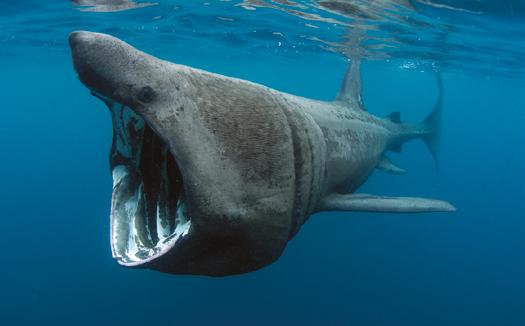
SWIMMERS, DIVERS
